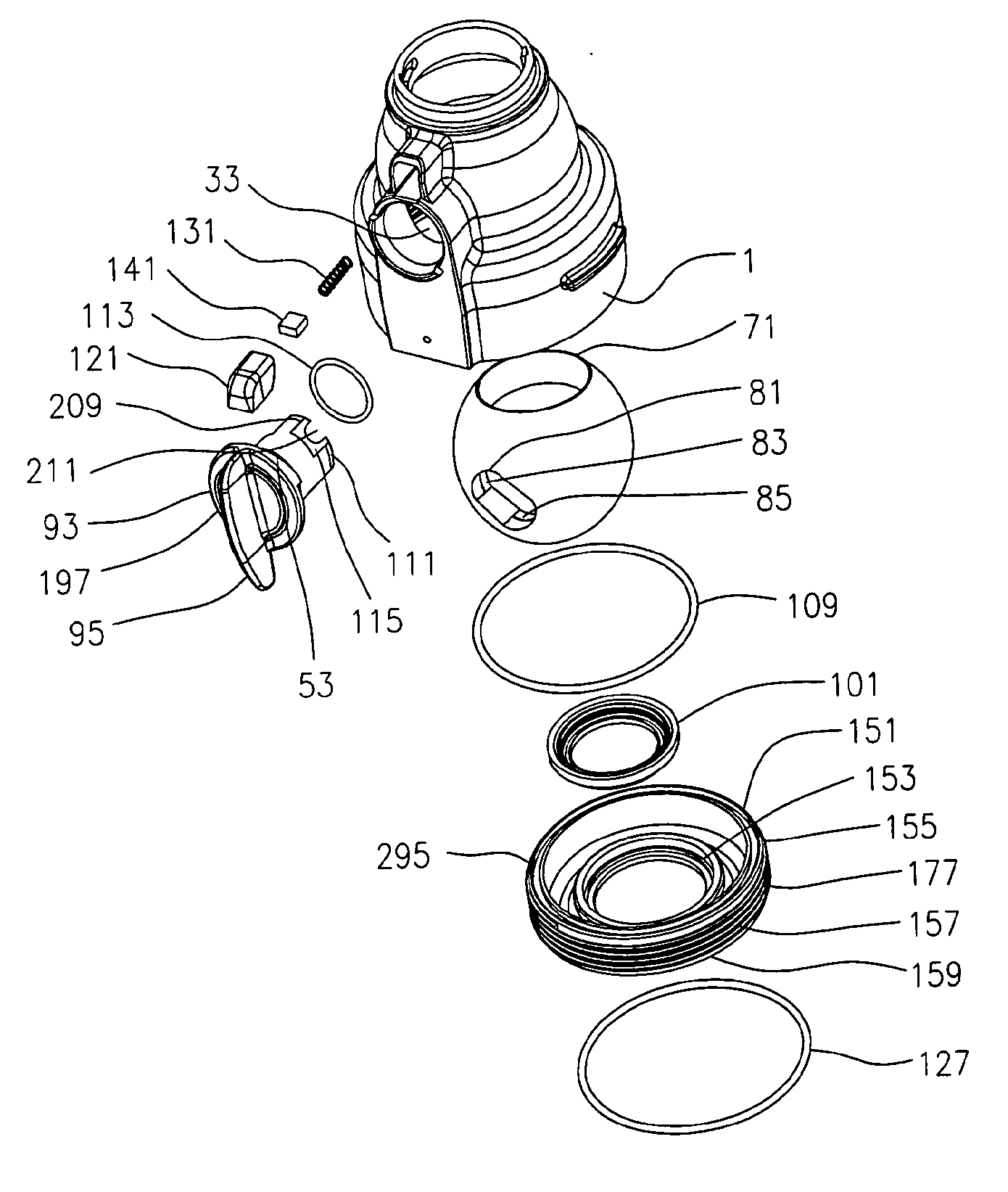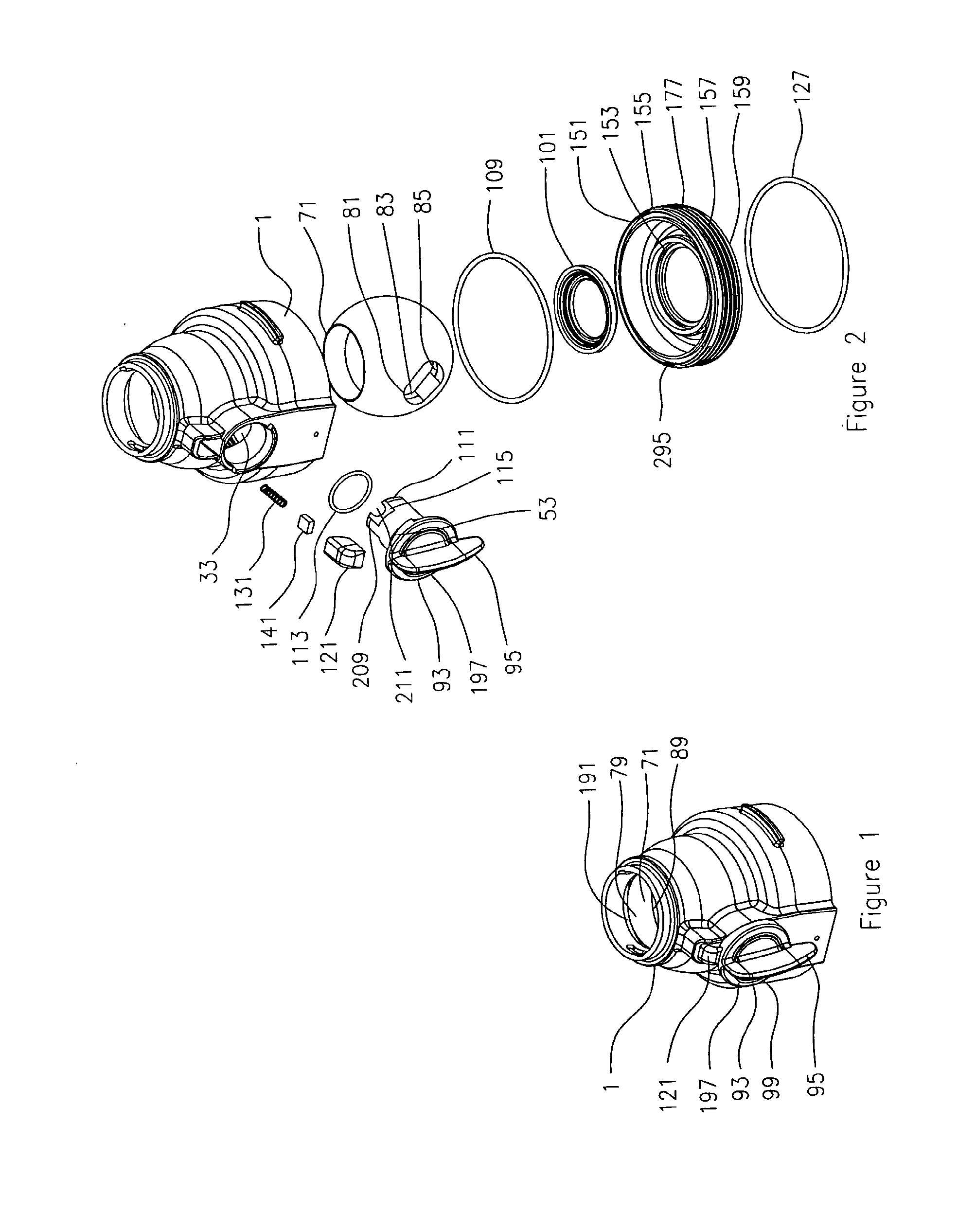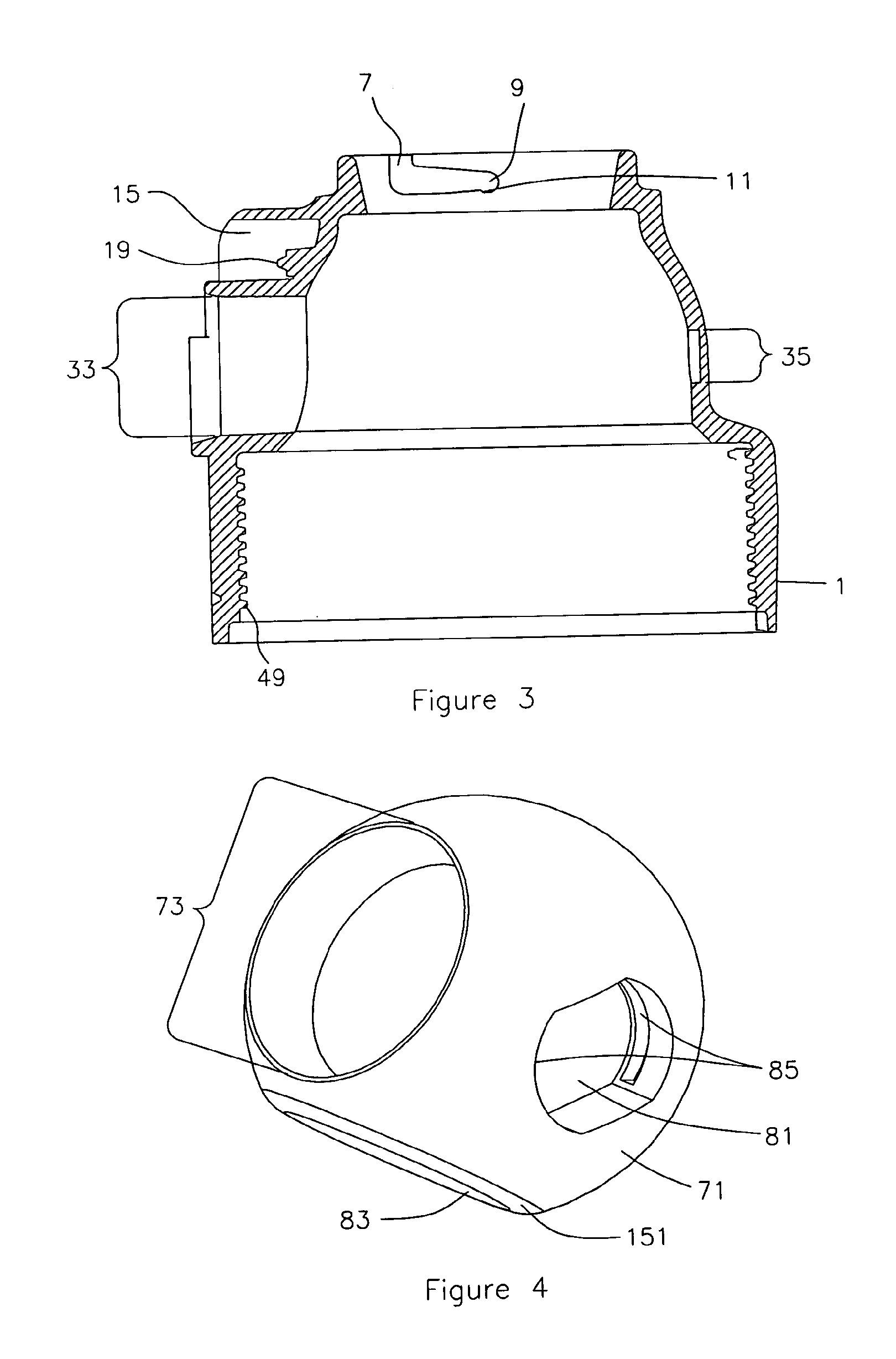Medical waste disposal system assembly
a technology of biological waste and waste removal station, which is applied in the direction of locking devices, mechanical equipment, transportation and packaging, etc., can solve the problems of exposing health care workers to risks, and achieve the effects of improving biological material disposal, facilitating the connection of the apparatus to the waste removal station, and improving working efficiency and reliability
- Summary
- Abstract
- Description
- Claims
- Application Information
AI Technical Summary
Benefits of technology
Problems solved by technology
Method used
Image
Examples
Embodiment Construction
[0026]FIG. 1 is a perspective view of the assembled apparatus. When assembled, housing 1 can be seen with closing member handle 93 and button 121. Since closing member handle is turned to the unlocked and open position, closing member 71 can be seen with angled opening portion 79 of the lumen radiused to facilitate passage of waste (not shown) and subsequent cleaning, straight portion 89 and gap 191 between housing 1 and closing member 71, allowing for greater surface area cleansing of closing member 71 and related parts. The external surface of closing member handle 93 is made up of handle 95 connected to handle face 197 with handle face raised feature 99.
[0027]FIG. 2 is an exploded view of the apparatus and details of the component parts. Starting with the top of the Figure, housing 1 is shown above closing member 71, closing member seal 101 and upper closing member gasket 109, lower closing member gasket 127, all of which seat into closing member seating ring 151. Depicted across...
PUM
 Login to View More
Login to View More Abstract
Description
Claims
Application Information
 Login to View More
Login to View More - R&D
- Intellectual Property
- Life Sciences
- Materials
- Tech Scout
- Unparalleled Data Quality
- Higher Quality Content
- 60% Fewer Hallucinations
Browse by: Latest US Patents, China's latest patents, Technical Efficacy Thesaurus, Application Domain, Technology Topic, Popular Technical Reports.
© 2025 PatSnap. All rights reserved.Legal|Privacy policy|Modern Slavery Act Transparency Statement|Sitemap|About US| Contact US: help@patsnap.com



